Research Collections and Support
Libraries are increasingly leveraging the raw materials of scholarship and knowledge formation by emphasizing the creation and curation of institutional research assets and outputs, including digitized special collections, research data, and researcher profiles. Our work informs current thinking about research collections and the emerging services that libraries are offering to support contemporary modes of scholarship. We are encouraging the development of new ways for libraries to build and provide these types of collections and deliver distinctive services. Our efforts are focused in the following three areas:
Presentations
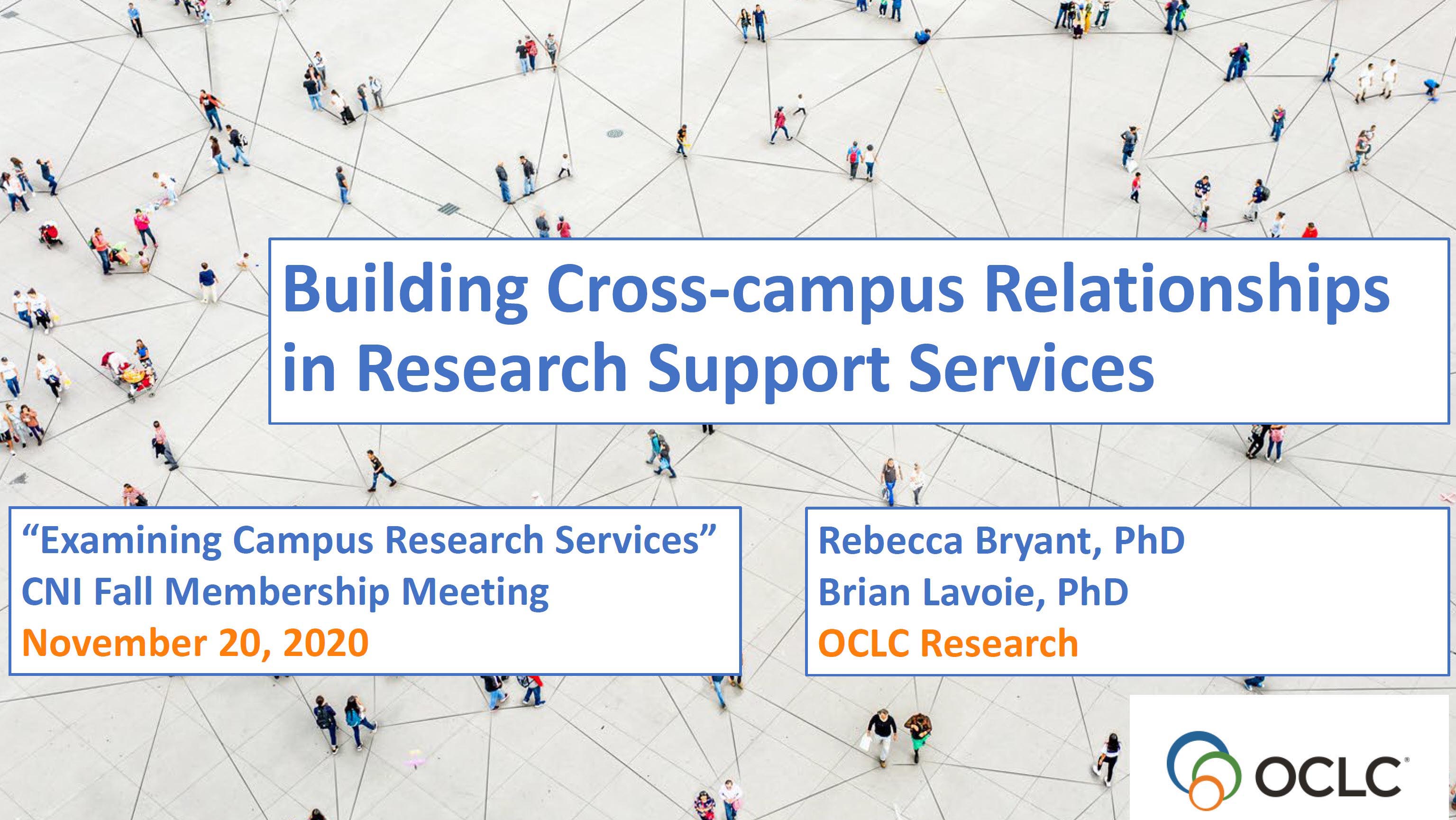
Building Cross-campus Relationships in Research Support Services
virtual
Robust, sustainable provision of research support services such as research data management, research information management, and research analytics requires careful attention to social interoperability—the creation and maintenance of working relationships between individuals and organizational units around the campus—to promote effective collaboration across internal silos. Research support is an enterprise-scale activity, involving units like the library, the research office, campus IT, and many others
This presentation provides an overview of findings from the recent OCLC Research report “Social Interoperability in Research Support: Cross-Campus Partnerships and the University Research Enterprise.” The report explores the social and structural norms that shape cross-campus collaboration; offers a conceptual model of key university stakeholders in research support; provides an overview of the goals, interests, expertise, and crucially, the importance of cross-campus relationships for these stakeholders; and concludes with recommendations for establishing and maintaining successful cross-campus relationships.
The report is based on a synthesis of information gathered from interviews conducted with practitioners from a wide range of campus stakeholders in research support. Attendees will take away a deeper understanding of the campus stakeholders involved in major categories of research support services and learn techniques for establishing and sustaining partnerships with these stakeholders.
Topics: Research Data Management, Research Support
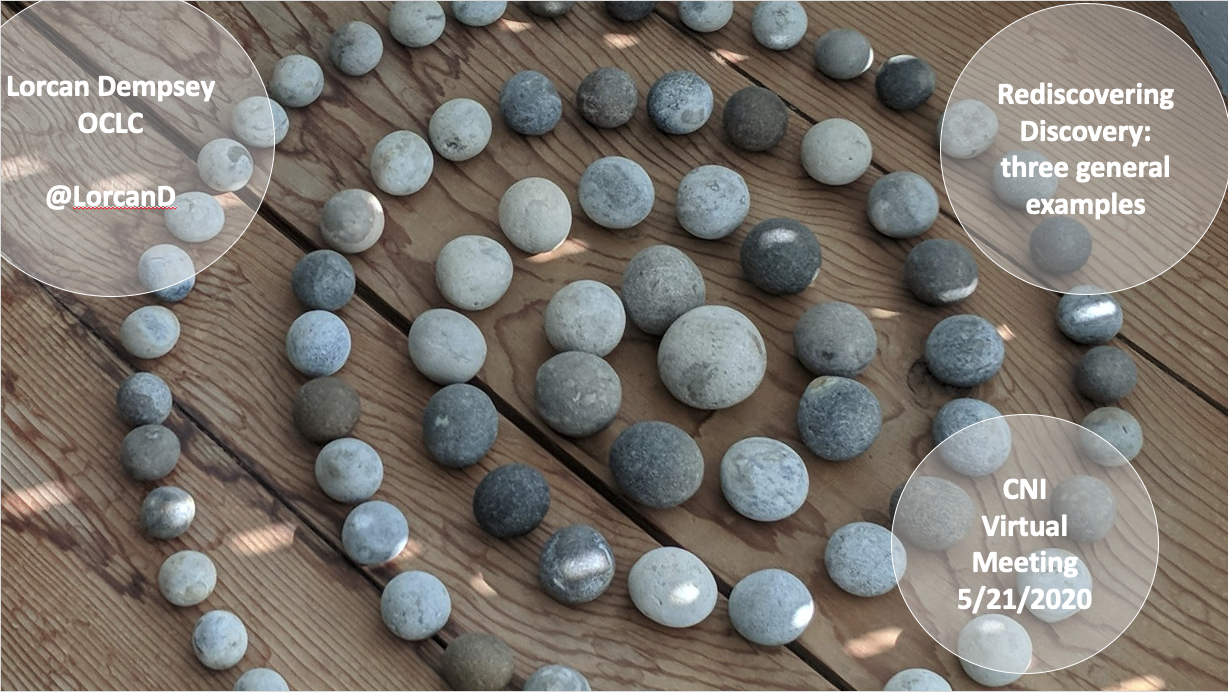
Rediscovering Discovery: three general examples
virtual
This presentation accompanied a panel discussion of current trends and issues in discovery systems, including a description of value-added full-text linking features, user behaviors and needs identified by transaction log analysis, the implementation of artificial intelligence and machine learning technologies in discovery, and plans by the Big Ten Academic Alliance for a collective collection system.
Recording available from CNI on Vimeo
Topics: Collective Collections, Library Trends
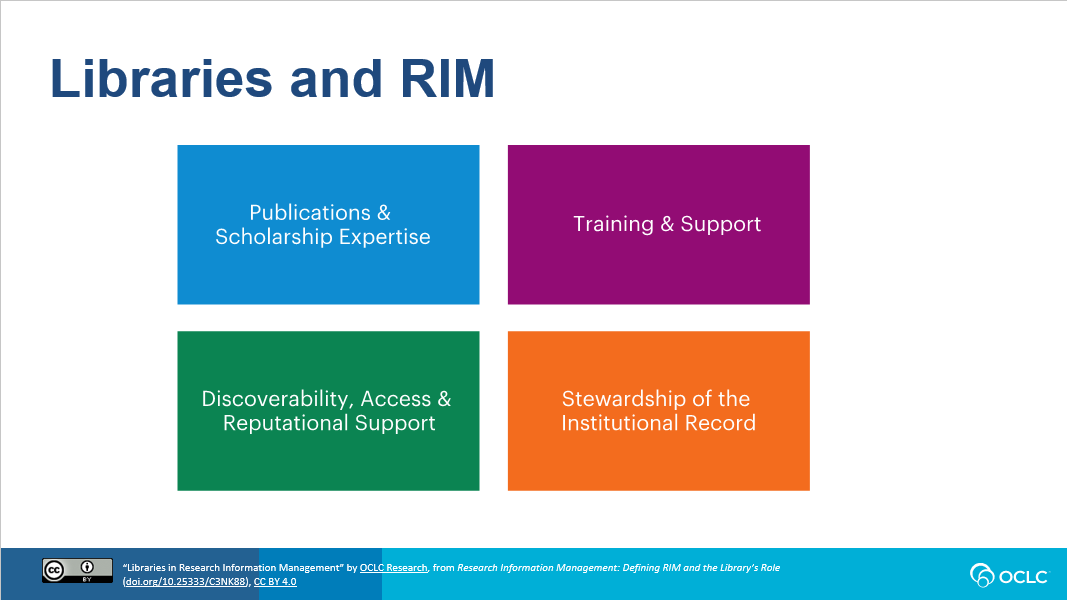
Research Information Management in the United States
virtual
Bryant shares highlights of her research into Research Information Management, particularly describing primary US cases, how American practices are distinctive from European—and indeed—global practices, and the importance of cross-institutional collaboration to ensure quality data and reduce workflow duplication.
Recording available from Florida Universities on Zoom.
Topics: Research Information Management
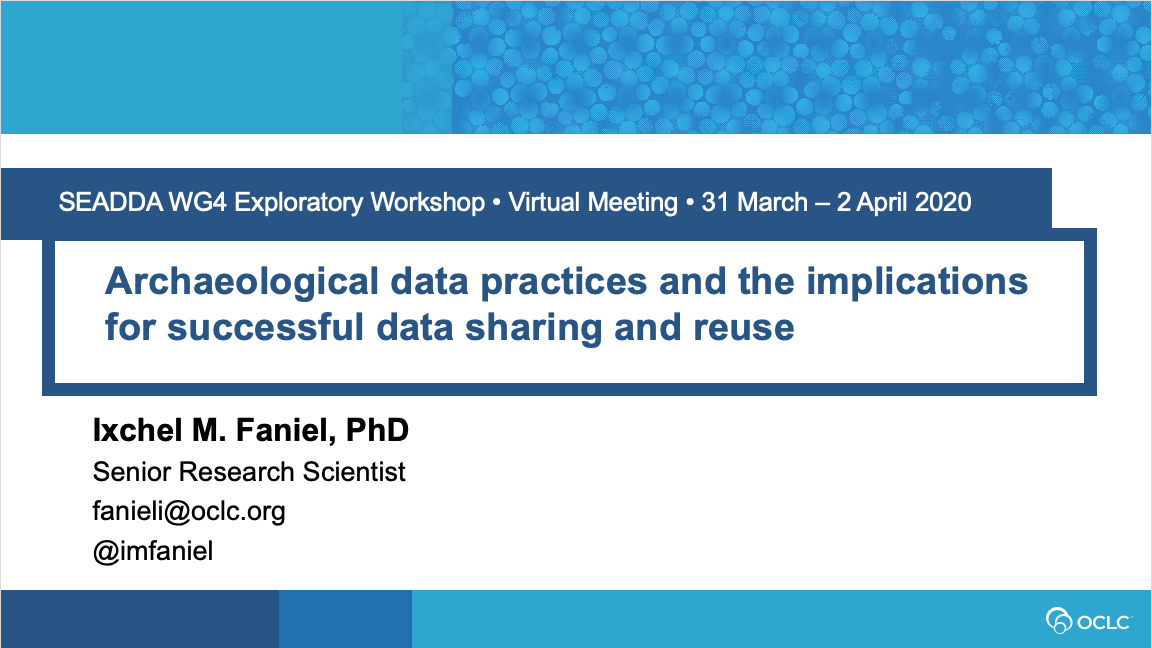
Archaeological data practices and the implications for successful data sharing and reuse
virtual
In this keynote presentation, Ixchel M. Faniel discusses findings from several studies examining archaeological data practices and needs and the implications for successful data sharing and reuse.
Keynote recording available from SEADDA.
Topics: User Research, Research Data Management, SLO-Data
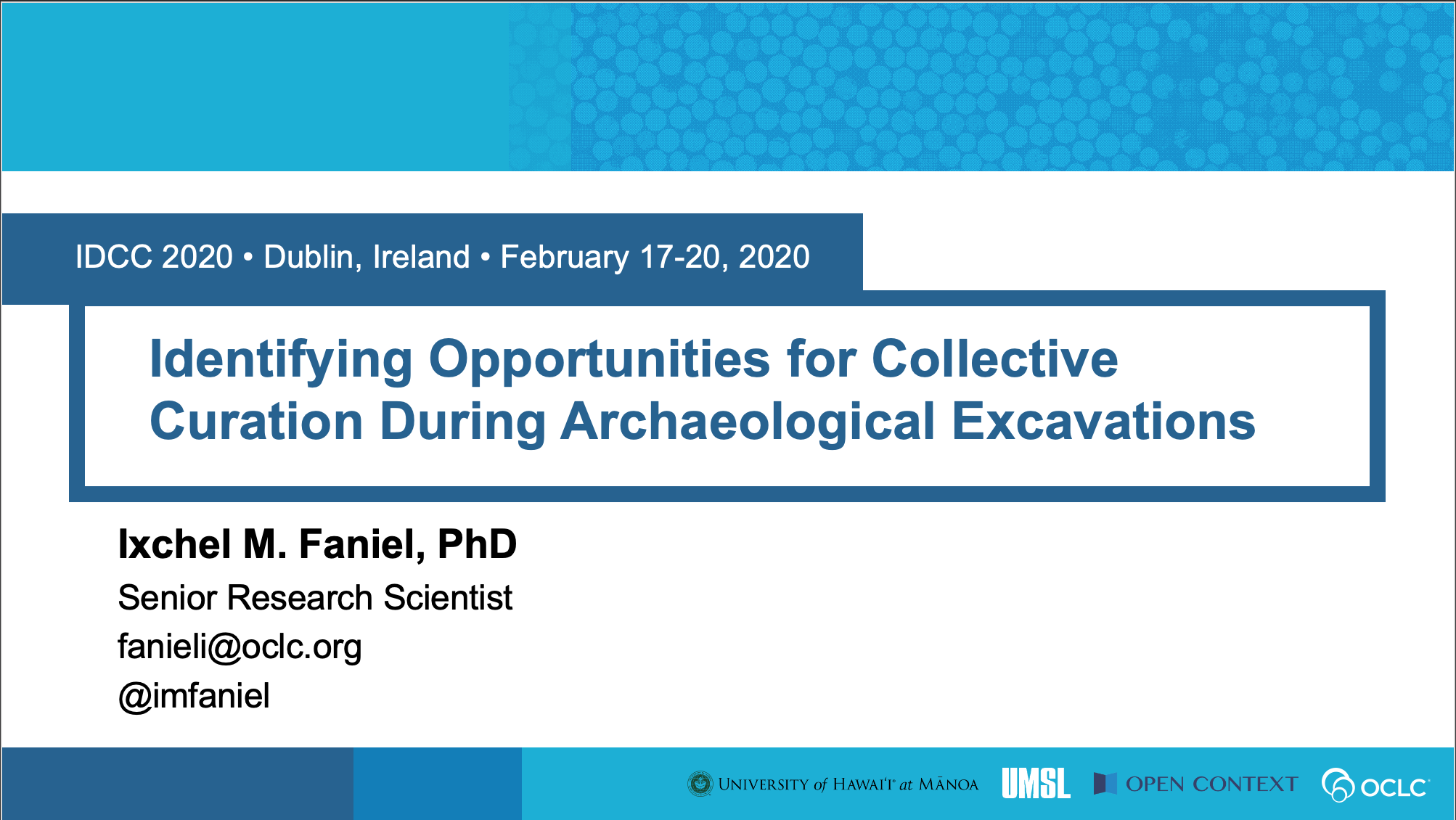
Identifying Opportunities for Collective Curation During Archaeological Excavations
Dublin, Ireland
Archaeological excavations are comprised of interdisciplinary teams that create, manage, and share data as they unearth and analyze material culture. These team-based settings are ripe for collective curation, particularly among the excavation teams responsible for unearthing the materials and the specialists responsible for analysing them. Yet, findings from a study of four excavation sites show specialist data tend to remain unlinked and decontextualized from excavation data. This presentation highlights findings from the study, opportunities identified for collective curation, and responses from the four excavation projects.
Topics: Research Data Management, User Research, SLO-Data
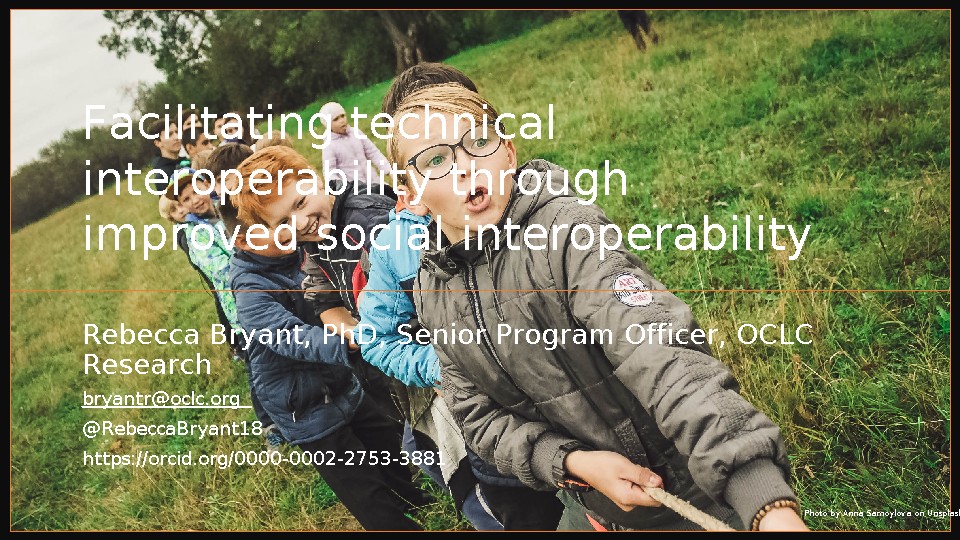
Facilitating Technical Interoperability through Improved Social Interoperability
Lisbon, Portugal
This presentation shared about a current OCLC Research project on Institutional Stakeholders in Research Support, oc.lc/stakeholders. We are examining the operations, goals, and pain points of university stakeholders supporting research support activities in order to equip practitioners with greater knowledge for successfully managing enterprise projects.
Topics: Institutional Organization, Organizational Identifiers, Research Support